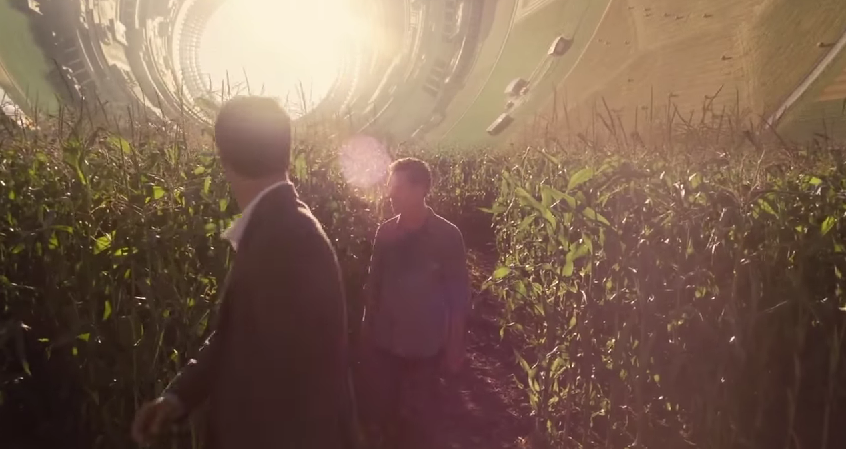
While many people enjoyed Christopher Nolan’s Interstellar — it made over $675 million at the box office and won several major awards — it was also voted the most overrated film of 2014 by Metacritic users. Why the ambivalence? Perhaps the reason some people have trouble with this movie is precisely why I like it so much.
While the genre of Interstellar is science fiction, the theme is one we don’t see that often: dystopian optimism. Or maybe hopeful dystopianism. We’re pretty comfortable with dystopian societies and post-apocalyptic wastelands. We’re interested to see how people cope in zombie-infested hellscapes or under futuristic totalitarian regimes. Occasionally plucky, courageous protagonists shine rays of light into these worlds, but they are bleak.
Interstellar is different. Within the setting of an Earth ravaged by drought and agricultural collapse, the point of the film is to escape that world and transform humanity’s destiny. It is a science-driven drama whose entire purpose is to turn its dystopian future into one of utopian plenty, through a combination of wormholes, space colonies, and the harnessing of the gravitational force.
Perhaps viewers are uncomfortable with this whiplash: forced to be not just hopeful, but radically optimistic in the face of so much pessimism and defeatism. Interstellar dares us to be truly utopian in a horrible environment, to believe that in a single lifetime, civilization can be completely transformed.
Stated so bluntly, this seems naïve at best and harmful at worst. In trying to change society too quickly, we run the risk of failing spectacularly. But perhaps this is the kind of thinking we need more of: dreaming so boldly that it entirely changes the conversation about what’s possible. Interstellar embodies this desire to remake the way we envision our future. Now we just need to transfer this storytelling style to how we envision the possibilities for our very real, still far-from-perfect world.
This piece is part of Science Fiction Frames: a series of incisive analyses, thoughtful meditations, wild theories, close readings, and speculative leaps jumping off from a single frame of a science fiction film or television show. If you would like to contribute to the series or learn more, email us at imagination@asu.edu.
